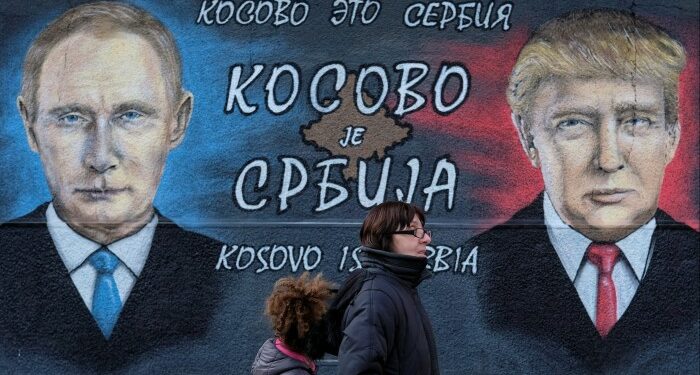In its latest progress report, the European Commission said it was ready to support Montenegro’s ambition to close its accession negotiations by the end of 2026 – which would imply full membership a few years later, if all EU states gave the green light.
Is this realistic?
One reason for caution is that, after a recent reshuffle, Montenegro’s government now depends for support on pro-Serbian and pro-Russian parties that are hostile to the EU and question whether Montenegrins are really a nation or just Serbs by another name. Writing for the China-CEE Institute, Vojin Golubović says:
It is especially dangerous that some of the key ministries are in the hands of those who deny the Montenegrin national identity.
Other signs are ominous, too. Last month, the anti-EU parties proposed a bill on “foreign agents” that is strikingly similar to a Russian-inspired law passed this year in Georgia. That law contributed to the EU’s decision to freeze Georgia’s membership bid.
Moreover, Montenegro angered Croatia in July when its parliament passed a resolution relating to Croatian atrocities in the second world war.
Like the Polish-Ukrainian dispute, and a quarrel over national identity, language and history between Bulgaria and North Macedonia, the clash between Croatia and Montenegro should not be brushed aside as a minor detail.
Until such issues are settled, EU enlargement simply will not happen. And that’s even before we consider the risks surrounding the Ukraine war, Trump’s second term and political developments in the EU itself.
Front-loading financial support to Ukraine: it’s now or never – an analysis by Olga Pindyuk for the Vienna Institute for International Economic Studies
Tony’s picks of the week
President-elect Donald Trump’s choice of Robert F Kennedy Jr for the top health job in the US government is a moment for scientists to reflect on how they can nurture constructive relationships with hostile politicians and voters, Anjana Ahuja writes for the FT
Kazakhstan’s government has won a tightly controlled referendum to endorse the construction of a nuclear power plant, but is cautious about how or even whether to rely on nuclear energy, Luca Anceschi writes for the Italian Institute for International Political Studies
You can see my choices for the best history books of the year here
Recommended newsletters for you
FT Opinion — Insights and judgments from top commentators. Sign up here
Chris Giles on Central Banks — Vital news and views on what central banks are thinking, inflation, interest rates and money. Sign up here
Source link : http://www.bing.com/news/apiclick.aspx?ref=FexRss&aid=&tid=6741bf17c77f4b98b34e76507c48d241&url=https%3A%2F%2Fwww.ft.com%2Fcontent%2F5f7f2df4-641a-4a93-9599-a223a191f6c7&c=15196997210222620673&mkt=de-de
Author :
Publish date : 2024-11-23 03:00:00
Copyright for syndicated content belongs to the linked Source.


